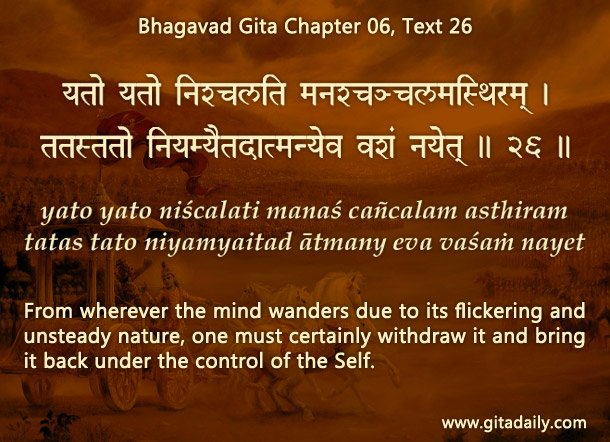We all have during our schedules certain slots that are filled with obligatory engagements and certain slots that are freer. Though we may have lots of things to do even in these freer slots, still those things are usually non-obligatory. For example, during the day, we may have to work at our jobs, but during the evenings, we may be free to choose what to do.
If we don’t plan properly to use such free slots constructively, then these slots become like blanks in our schedule. And the mind is often very prompt in filling those blanks by suggesting various activities. Frequently the mind’s suggested activities range from the merely time-wasting to the gravely self-defeating. And the danger with listening to the mind’s suggestions is not just that it makes us underutilize or misuse our free time. Worse still, its spell makes us so hooked to its suggested activity that we even neglect important things that we had planned to do later.
For example, after school, students may decide, on the mind’s prompting, to play a video game for half an hour before beginning the assignments they need to submit the next day. But by giving in to the mind, they often make it stronger and their own resolve weaker. Consequently, its prompting to continue playing may become so forceful that they end up playing through the evening into the night, getting themselves into unnecessary trouble at school the next day. Thus, the mind doesn’t just fill the blanks in our schedule, but also overwrites whatever we may have planned to do after the free time.
No wonder the Bhagavad-gita (06.26) cautions us to not get carried away by the mind, but to bring it back under control whenever and wherever it wanders.
Explanation of article:


Very nice Time management lesson prabhu ji… Hari Bol !!!
Hare Krishna Chaitanya Charan Prabhuji,
This article reminds me our talk on the first day of your Melbourne trip while coming back from the Mantra Lounge;and also your presentation on mind.
Thank you for sharing your wonderful realization with us on a daily basis.
Ys,
Mehul